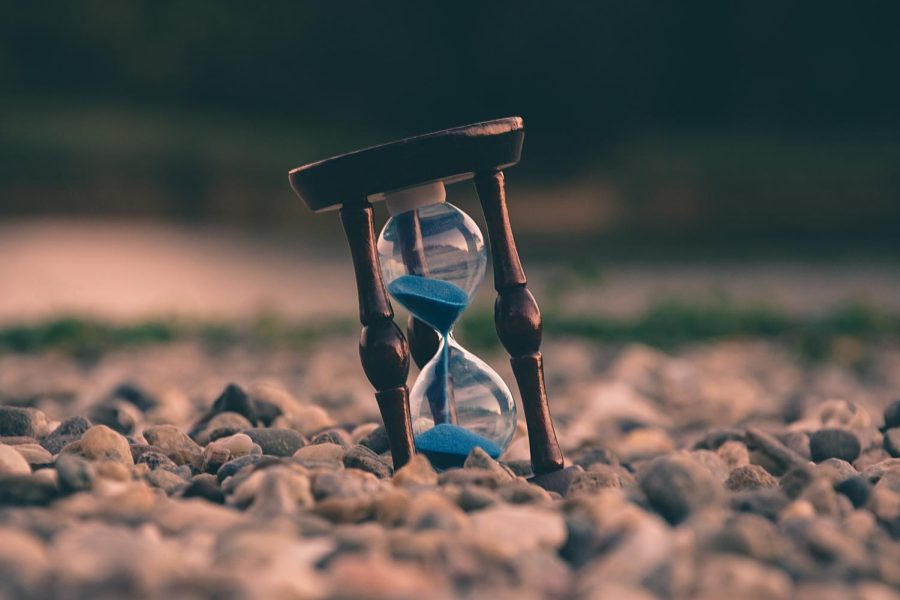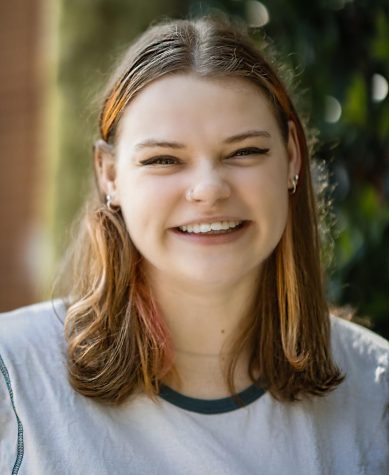Placing History Into the Future
Will Stetson’s ode to history be a success despite setbacks? Only the future can tell.
April 13, 2023
In February of 2020, the idea of a Stetson time capsule was conceived by Dakota Figaro and other members of Phi Alpha Theta History Honor Society. However, due to COVID-19, it remained an idea until almost two years later, the society’s 80th anniversary. On Oct. 15, 2021, the Phi Alpha Theta History Honor Society announced its plans to compile a time capsule and bury it under the new construction of the Cici and Hyatt Brown Hall for Health and Innovation and set it to be opened 50 years from now, in 2072. This was a perfect and unique opportunity for the Stetson community to be a part of the university’s history and help fund the honor society.
The announcement stated that the entire Stetson community was welcome to purchase tickets. There were two different colors—one for students and the other for non-students. Each ticket holder had the chance to bury an object in one time capsule and a message in the other adjacent one. With their announcement officially published, the honor society waited in anticipation for ticket sales to role in. They sent out a reminder on Oct. 16, 2022, urging faculty members and students to participate. By Nov. 15, after a second reminder announcement was posted almost a month later, they were still waiting.
“We had a really big promotion program on this,” Dr. Kimberly Reiter, the advisor of Phi Alpha Theta said. “We wrote to alumni, we wrote to trustees, we wrote to students, we wrote to faculty, and it failed. We had 25 participants with all of that promotion.”
Despite the small number of participants, Dr. Reiter is adamant that it will be a worthwhile experience for the 25 who bought tickets. “For the 25 who participated, it wasn’t a failure, because their legacy will be there 50 years from now when they open up the capsule.”
Nicholas Dieux ’25, one of the 25 participants, is excited about the time capsule and considers it a persona success: “I chose to participate in the time capsule project because I want to come back after many years and remember why I love this school so much,” he said. “About two months ago, I lost one of my best friends to liver cancer. I’m going to write a letter to him and put it in the time capsule, as well as a letter talking about my life right now, where I want to end up, and just some things I look forward to.”
Though the ceremony will be much smaller than original anticipated, Dr Reiter described it as a “very quiet burial” during the summer when all participants will be invited to attend. It will go beneath a designated plague in the garden of the new health sciences building. The ceremony’s date will be determined once the garden is planted. The time capsule is going to be the last thing to go in, the last piece of a yearlong construction project.
While there were only a handful of people who bought raffle tickets, the Phi Alpha Theta History Honor Society did successfully reach its financial goal of funding the Phi Alpha Theta State Conference. For the first time in two years, the conference will take place, with students from around the state congregating at Stetson University to present their papers on various history topics.
“We’re really, really excited,” Dr. Reiter said. “We’re generating the enthusiasm that will take us to an even bigger regional conference… Stetson said enough [waiting around], we’ve got to do this. We have gotten kudos from seven or eight schools that are sending students and another couple of schools that are sending advisors… I think we have stirred the pot, and it’s going to be a fun day.”
While she questioned why people might not have cared about participating in the time capsule, Dr. Reiter hopes everyone would take something away from it: “I hope that the current generation of Stetson students takes way from this, that their lives are ephemeral,” Dr. Reiter explained. “If you just record things on Instagram, or Facebook, or whatever it is that you’re recording things on now, those photos, those memories, they disappear.”
She urges students to “start taking physical photographs, physical mementos, keep them in a box for heaven’s sake, but make copies of everything because one of these days, 10 years from now, 20 years from now, 50 years from now, you’re going to want your own time capsule. You’re going to want to remember friendships you had going on, remember the successes, you’re going to want to remember all the stupid crazy goofy things you do. And it won’t be on your phone.”
She also has hopes for those who open the time capsule 50 years from now: “I hope they get a wonderful snapshot of what you all were line in 2022. The pains that you’ve had to go through, the COVID, the anxieties about the world… They will get an idea of the triumphs that you’ve had, the ability to work through challenges, and to come out glad that they had a Stetson experience… But won’t it be kind of cool to put a little of ourselves into a capsule and wonder what those who can come back will think about this? What will their grandchildren think of them? What will the people they meet think about 2022? For you, everything is here and now. Imagine opening something from 1972. What would those students say to you?”
Whether you consider the time capsule to be a failure or success, a unique piece of Stetson history will be placed in the ground, only allowed to be open 50 years from now. This is the university’s ode to our history, to our current generation. What it will say to those who open it is yet to be written.








